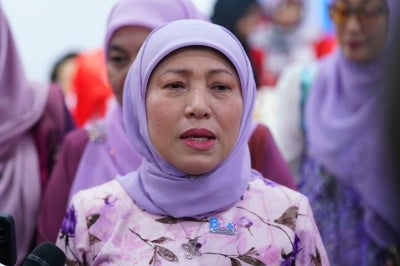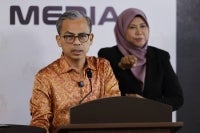Enhance airline consumers’ rights with proper strategies, good practices, proactive actions
HANI SHAMIRA SHAHRUDIN, HAJAR UMIRA MD ZAKI
SHAH ALAM – “Don’t fly with AirAsia! AirAsia should be the last choice! Try another airline!”
Those were among the comments that swarmed the social media platforms, specifically on Twitter for the last few months as the airline carrier AirAsia’s flights were claimed to be constantly delayed and rescheduled at the very last minute.
Due to the airlines’ shortcomings, customers said they needed to change their schedule and appointments in order to follow the rescheduled flights, which was an unfavourable situation for them.
Not only that the delayed flights caused a social media uproar, but the allegedly incompetent customer service system also added oil to the fire.
A Twitter user @ruffleseed, whose flight was rescheduled, shared that he bought another ticket to ensure that his plans would go on smoothly, but the second flight was also rescheduled.
“Flight rescheduled, I bought another flight (ticket). That one (also) was rescheduled to a later time. @airasia the original flight is still available, why retime me? So you can sell the seats at a higher rate?” he posted.
Another user @anissssmail was also stressed with the airline operator’s last-minute postponement and the lack of customer service to assist with the delay.
Moreover, their complaints against the company were unattended as the customer service system was not much help in attending to the issues.
The issue was believed to have occurred because the airline allegedly sold more tickets than they could accommodate.
A pilot of the company claimed that the airline’s ticketing and marketing teams had sold tickets way beyond what it could accommodate at the moment especially now that they did not have enough aircraft.
“Despite our complaints, they were still selling tickets and did promotions like how they did pre-pandemic.
“The ones that have to face the customers are the pilots and the cabin crews.
“Imagine this, when we arrive at the airport according to our rostered schedule, our plane was not there yet and we had to wait alongside the customers,” he said, adding that they had to face the backlash as they were the frontline of the company.
Meanwhile, a stewardess for the airline revealed that at the moment, there was a shortage of manpower as many cabin crews and pilots left the company to seek better jobs with a more stable income.
This comes after many allowances were allegedly cut during the pandemic and it had not been reinstated to the pre-pandemic stage and many of the staffs were feeling the heat.
“Just in May, more than 20 cabin crews tendered their resignation as they could not take it any longer.
“Aside from being underpaid, we are overworked,” she added.
Previously, Transport Minister Datuk Seri Dr Wee Ka Siong said it was critical for airline consumer rights to be enhanced to safeguard the consumers’ well-being and protect their interests.
Wee said such pursuit, amid the challenges brought by the pandemic, required extensive collaborations and engagement to propel the aviation industry forward locally and globally.
Wee said Covid-19 had reaffirmed the critical importance of air travel and its development for Malaysia as airlines and airports also had to quickly adapt to the introduction of new regulations and pivot their business and operational strategies during the pandemic.
He added that even though the aviation industry was on the road to recovery, it would be a long and winding one but could be done if all parties played a role in bettering air travel for consumers through the implementation of appropriate strategies, good industry practices, and proactive actions.
Malaysia forecasted air passenger traffic numbers in 2022 to be between 32.6 million and 49 million.
The country’s annual passenger traffic declined sharply from 109.2 million in 2019 to 26.7 million in 2020 and dropped further to 11.0 million in 2021.
During the height of the pandemic, airlines recorded an unprecedented drop in seat capacity of -92.3 per cent year-on-year in May 2020, the largest ever decline in the Malaysian aviation industry.
Sinar Daily had reached out to AirAsia for comments on the issue but has yet to receive a reply.
Download Sinar Daily application.Click Here!














